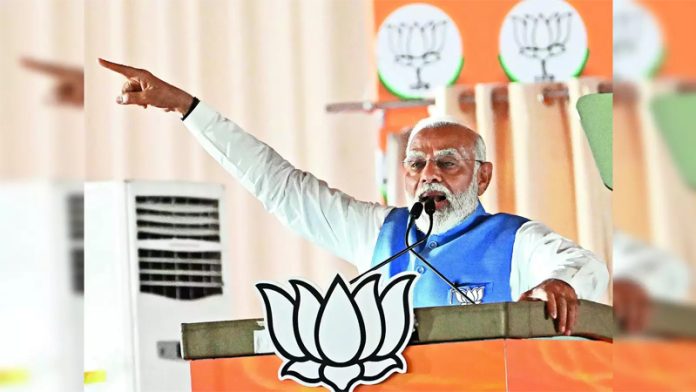WASHINGTON, May 30 : Prime Minister Narendra Modi has the pulse of the average man and has carried out fundamental reforms to create an infrastructure which has taken the country on a path to becoming a developed economy, the head of a US-based non-profit body of IIT alumni has said.
“You can have many politicians who can say something but mean something else. But here you have a person who is leading by example and his leadership, his work ethic, his delivering performance from his account is perpetuating in terms of every minister, every ministry following and being forced to lead that, to follow that,” Ratan Agarwal, president of WHEELS Global Foundation, told PTI in an interview.
“So those are some of the hallmarks. I think there are many, many proof points of how fast the country has transformed. But those fundamentals are going to take the country into the next 30, 40, 50 years,” he said.
With three decades of rich experience in building and scaling multiple new start-ups and executive roles at several Fortune 500 companies, Agarwal is a co-founder and managing partner of CARBON Group Global — a global sustainability solutions-holding company, creating rapid replications.
WHEELS Global Foundation, which was founded by IIT Alumni, with the motivation of A P J Abdul Kalam, has now initiated nearly 30 projects in India to impact millions of Indians.
“The country under Prime Minister Modi has been blessed with a leader who came from those grassroots, coming from a life of an average person who had to struggle to rise and his proactive efforts to travel across the country, north to south, east to west, gave him that unique empathy, understanding of the average person. That has been one of the hallmarks of how Modi has acted in terms of being able to understand the pulse of the average man, to think long term, to not think about the next five years, but the next 50 years,” Agarwal said.
“That has shown up in his fundamental reforms to create an infrastructure which has taken the country now on a path to becoming a developed economy. The infrastructure improvements, the country cannot be unified without transportation infrastructure and communications infrastructure. And on both fronts, the country is now leapfrogging every three, four, five years,” he said.
“The mobile penetration is the perfect evidence of how fast the communication infrastructure has changed in the country. The banking infrastructure has transformed, putting India on the landscape in the world. The transformation of the country in terms of the highways and railways is again just a phenomenal example of how many rails, and how many highways are now being built, which are shortening the time and integrating the country. The biggest among all the things underlying one common theme, understanding the common man, having empathy with the average person and then leading by example,” Agarwal said.
Technology and innovation are the two areas wherein the diaspora can play a role in making India a developed nation by 2047, he said.
“We had a webinar with Nitin Gadkari, and this was the first task he had. We are taking up that ask by bringing together the best minds and identifying areas where we can help the country grow its exports and substitute its imports. That’s a perfect example of how we can harness that massive intellectual capacity across our technology, medical, and other domains to contribute intellectually,” Agarwal said in response to a question. (PTI)


